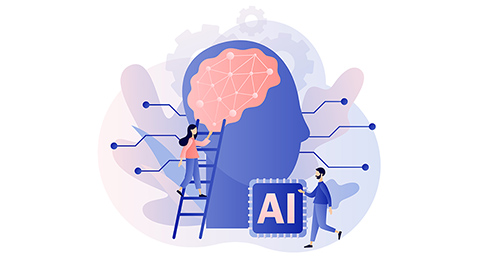7 Different Factors You May Not Realize Affect Your Google Ranking
How often have you wished your website appeared on the first page of Google search results? It’s not magic but a product of understanding and leveraging various factors affecting Google’s ranking. There’s no definitive formula for getting to the top. However, key elements like content quality, keyword optimization, and user experience can enhance your Google standing. Each of these elements uniquely influences how Google perceives and ranks your website. Let’s dive deeper into these crucial aspects and explore how they can improve your visibility and Google ranking.
7 Different Factors That Affect Your Google Ranking

These are the following factors that you may not realize affect your Google ranking. We’re only presenting factors that were officially confirmed by Google and/or other search engines.
1. Content
You likely already know that content plays a large factor in your rankings, but you may not know what Google looks for when they rank content. A few things determine your rank, such as the quality of content, click-through rate, domain authority, and on-page SEO. However, backlinks, swell time, user behavior, and mobile experience also determine your content’s rankability. This means that you need to create great content and improve every bit of SEO that connects to your content. Focusing purely on what you produce won’t cut it.
2. SSL Encryption
SSL encryption is an essential part of enhancing your website’s security and fostering trust with visitors, and it does impact your Google ranking. SSL (Secure Sockets Layer) provides secure communication between client and server, safeguarding information as it travels the internet.
In 2014, Google announced HTTPS (which indicates the presence of SSL) as a ranking signal. Having an SSL-certified website signals Google that your site is trustworthy, leading to potentially better rankings. Without SSL encryption, your website could fall behind.
3. CTR (Click-Through Rate)
Click-through rate (CTR) is the ratio between clicks and impressions in search results. CTR is affected by things like brand recognition, rich snippets, title relevance, and so on. While Google isn’t exactly clear about how CTR is used, there’s evidence that Google uses it to rank pages.
We know that Google favors longer viewing times over shorter viewing times. With that said, understanding how to improve CTR can be complex. For this reason, it’s a good idea to hire a company like topoftheresults.com if you need an expert in CTA manipulation.
4. User Experience
User experience, often referred to as UX, plays a pivotal role in your Google ranking. Google continuously aims to ensure that websites provide users with the best possible experience, which means easy navigation, fast load times, and mobile optimization are key. Think of your website as a storefront. It should be welcoming, easy to navigate, and quick to respond. Ensure your content is organized logically across your site for optimal UX. Don’t forget about mobile users, either. Ensure everything functions seamlessly on smaller screens, too.
5. Page Speed
Page speed is another significant aspect that can impact your Google ranking. Your website’s loading time is more than just a matter of user convenience. It’s a critical component in how Google evaluates your site. Slow-loading pages could lead to high bounce rates.
Google has increasingly placed importance on mobile page speed, explicitly considering it a ranking factor for mobile searches. Invest time in optimizing your site’s speed by compressing images, eliminating unnecessary plugins, and enabling browser caching, among other things.
6. Freshness
“Freshness” pertains to how often your website content is updated. Ongoing content generation signifies active site management, a factor Google appreciates and rewards with higher rankings. It’s not just about posting new articles or blogs constantly but also about updating older ones. Irrespective of its age, it endorses the site’s freshness if the content remains applicable, valuable, and engaging for readers. Staying updated on your niche’s trends and adding newly relevant information to your previous posts can keep your website fresh and attractive.
7. E-A-T (Expertise, Authority, Trustworthiness)
E-A-T, which stands for Expertise, Authority, and Trustworthiness, plays a vital role in Google’s ranking algorithm. E-A-T is a measure of the credibility of your website and content, as seen by Google. A site with high expertise will offer complete, accurate information to readers.
It shows authority by being recognized as a leader in its field. Finally, it’s trustworthy when visitors feel confident about the information provided. Building on these components improves your website’s rating and strengthens its standing in Google’s search engine results.
Factors Affecting Google Ranking – In Conclusion
With the knowledge of the factors affecting Google ranking, you’re better prepared to optimize your website and climb up those SERPs. Growing your online visibility might seem challenging, but armed with this insight, you can incrementally enhance your ranking. Remember, the journey to the first page of Google search results isn’t instantaneous. It requires patience and continual adaptation as SEO trends evolve. Start by taking a closer look at your site and see where you can make improvements. Your efforts will pay off if you keep at it.
The Bravr team suggests aligning your content strategy with link building. Better content naturally attracts stronger links, and acquiring links without robust content may raise suspicions with Google. Therefore, these two components should go hand in hand.




Leave a Reply